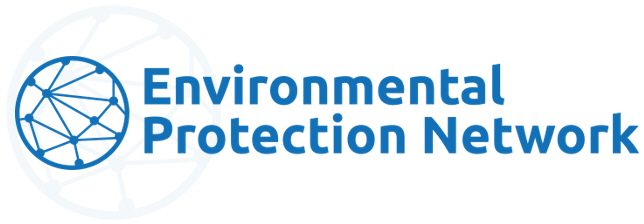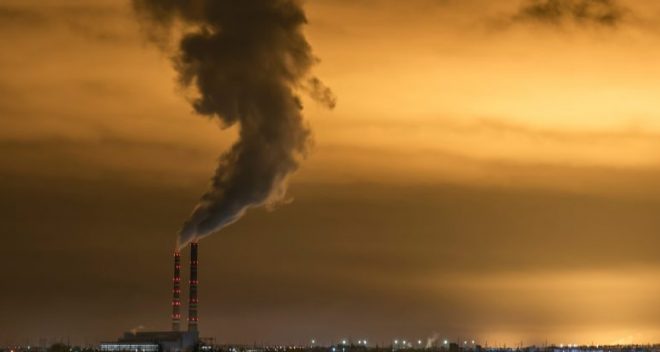EPN In Action July-August 2019
Welcome to your EPN In Action newsletter update for July-August 2019
Over the past two months, EPN submitted two sets of formal comments on proposed rulemakings and a set of comments on a draft chemical risk evaluation, provided written and oral testimonies to an EPA advisory committee and board, and continued to be a trusted source of information to reporters.
About the Environmental Protection Network
The Environmental Protection Network was launched in January 2017 to harness the expertise of former EPA career staff and confirmation-level appointees from multiple administrations to provide an informed and rigorous defense against efforts to undermine the protection of public health and the environment.
Highlights:
EPN submitted a third set of comments on the chemical Pigment Violet 29 (PV29), as well as written and oral comments on three additional draft chemical risk evaluations for 1,4-Dioxane, HBCD, and 1-Bromopropane (1-BP) to the Science Advisory Committee on Chemicals. EPN also submitted more detailed comments on 1,4-Dioxane and HBCD.
EPN submitted written and oral testimony to the EPA Science Advisory Board on the issue of personally identifying information and confidential business information, as it is proposed under the censored science rule. EPN also drafted comments to the Council on Environmental Quality on the draft National Environmental Policy Act (NEPA) guidance for climate changing greenhouse gas emissions.
EPN submitted comments to EPA on the Region 4 North Carolina State Implementation Plan (SIP) alternative interpretation and submitted comments on the proposed perchlorate drinking water standard.
EPN’s members were featured in dozens of media outlets and authored numerous op-eds.
EPN’s Work on Draft Risk Evaluations Under TSCA
EPN’s Work on Censored Science and NEPA
Censored Science and NEPA In The News
Scientists Fight Trump EPA ‘Secret Science’ Proposal to Exclude Certain Research
EPN member Roy Gamse, former Deputy Assistant Administrator for Planning and Evaluation and Acting Assistant Administrator for Planning and Management, is quoted in this article about scientists pushing back against a Trump Administration proposal that would block EPA from relying on studies that don’t make their underlying data public.
Former EPA Officials Criticize Alleged Sidelining of Science
EPN members Dr. Bernard Goldstein, former chair, EPA Clean Air Scientific Advisory Committee, and former EPA Assistant Administrator for Research and Development, and Roy Gamse, former Deputy Assistant Administrator for Planning and Evaluation and Acting Assistant Administrator for Planning and Management, are quoted in this article about the Science Advisory Board’s role in consulting with EPA on its Censored Science proposal and the serious practical and ethical problems that arise from it.
EPA Alumni Balk at Draft NEPA Guidance
This article discusses and quotes EPN’s comments objecting to draft guidance issued by the Council on Environmental Quality to assist federal agencies in considering greenhouse gas emissions when they evaluate federal actions, like the construction of roads and pipelines, under NEPA.
EPN’s Work on Region 4 SIP and Perchlorate
More examples of EPN In The News
In addition to the news articles above, EPN members contributed to a range of articles on topics such as the Clean Power Plan, changes to the Federal Advisory Committees Act, Trump’s speech on his environmental record, attacks on science, a variety of air issues, methane, and the Safe Affordable Fuel-Efficient Vehicle rule. EPN members have also penned their own op-eds on greenhouse gas emissions and NEPA, as well as budget issues concerning states.
Vehicle GHG Voluntary Deal Could Be Model But Federal Role Preferred
EPN member Jeff Alson, former EPA Senior Engineer and Policy Advisor, Office of Transportation and Air Quality, is quoted in this article about how automakers’ voluntary deal with California could be a model for voluntary environmental initiatives in other sectors, but would not be as protective as federal policies backed by enforcement or oversight.
A Toxic Tale: Trump’s Environmental Impact
EPN member Janet McCabe, former EPA Acting Assistant Administrator, Office of Air and Radiation, was interviewed for this special about the devastating impacts of Trump’s deregulation campaign.
Erasing ‘Climate Change’ From Federal Agencies Won’t Make It Go Away
EPN member Cynthia Giles, former EPA Assistant Administrator, Office of Enforcement and Compliance Assurance, wrote this op-ed about the Trump Administration encouraging federal agencies to downplay and dismiss the risks of climate change in regulations and policies. For example, the White House Council on Environmental Quality’s (CEQ) draft guidance on how federal agencies should consider climate when they evaluate federal actions under the National Environmental Policy Act (NEPA) makes no mention of “climate change.”
These High School Runners Train In ‘Nasty Air,’ So They’re Working To Clean It Up
EPN member Trish Koman, former Senior Environmental Scientist, Program Manager and Supervisor in EPA’s Office of Transportation and Air Quality, was quoted in this article about emissions from school buses and their disproportionate impact on sensitive populations such as young children.
GAO: EPA Skirted Procedures In Overhaul Of Science Boards
Christopher Zarba, EPN member and former Director, EPA Science Advisory Board, was quoted in this article about a report from the Government Accountability Office (GAO) that found that EPA ignored several ethics rules and administrative procedures when overhauling its science advisory panels. This article ran in numerous other publications, including ABC, US News, and The Telegram.
Trump’s Not-So-Secret War On State Environmental Protection
David Coursen, EPN member and former EPA Office of General Counsel, wrote this op-ed about the Trump Administration’s attacks on state-level environmental protection efforts, from proposed budget cuts for brownfield programs to potential rescindment of waivers that allow states to set standards that are more stringent than at the federal level.









